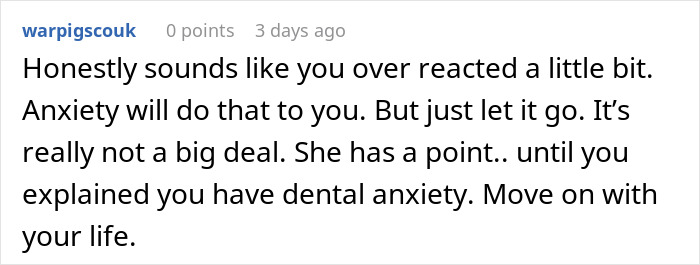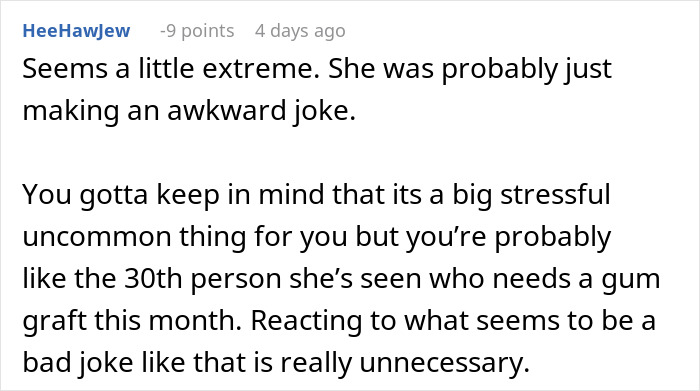A doctor’s office should be a place of trust but for some, it can fill up with false assumptions and biases instead.
A few days ago, Reddit user Peach_Emoji_ turned to the platform to let out her frustrations after a visit to a periodontist, who acted in a very dismissive manner because of the patient’s tattoos.
This story highlights that people still run into prejudices in the healthcare sector, leading to discomfort and anxiety about their treatment.
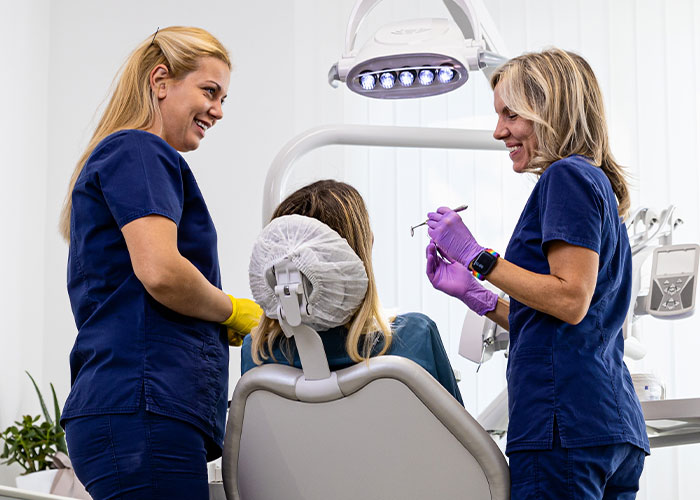
Image credits: zoranzeremski / envatoelements (not the actual photo)
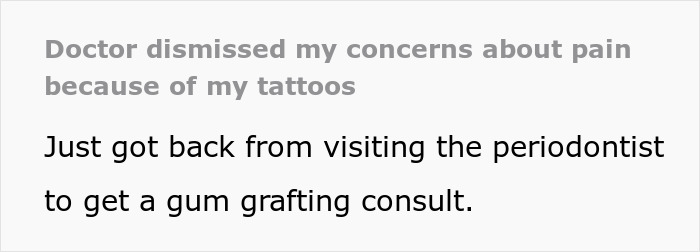
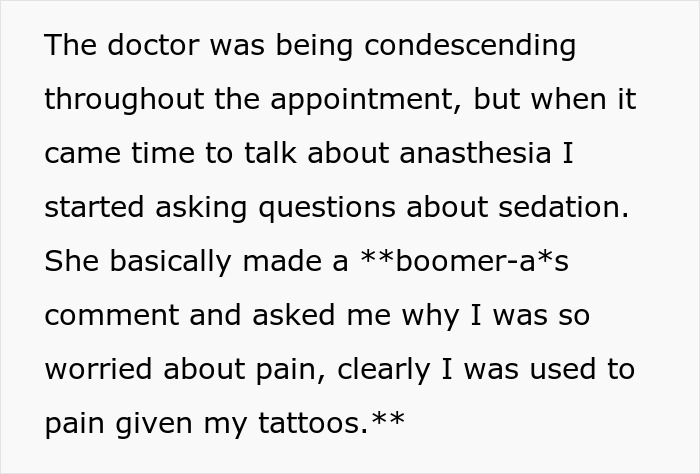
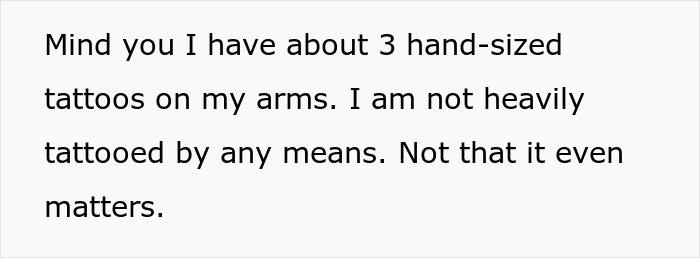
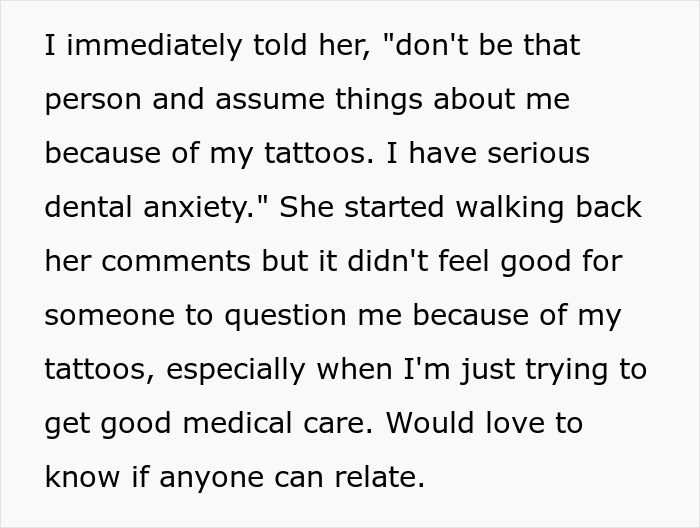
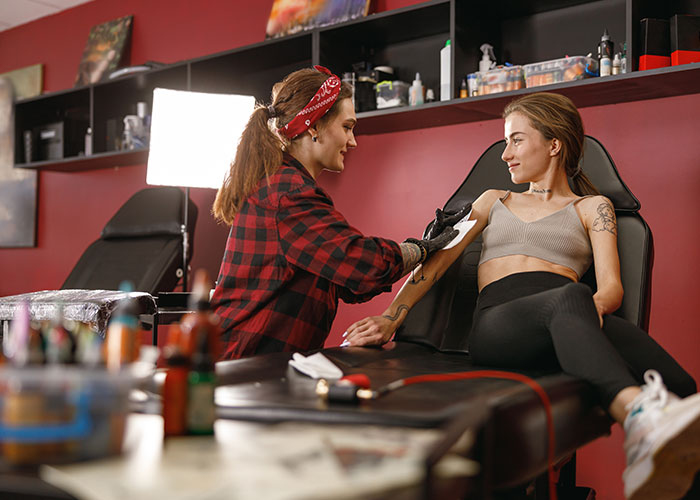
Image credits: astakhovyaroslav / envatoelements (not the actual photo)
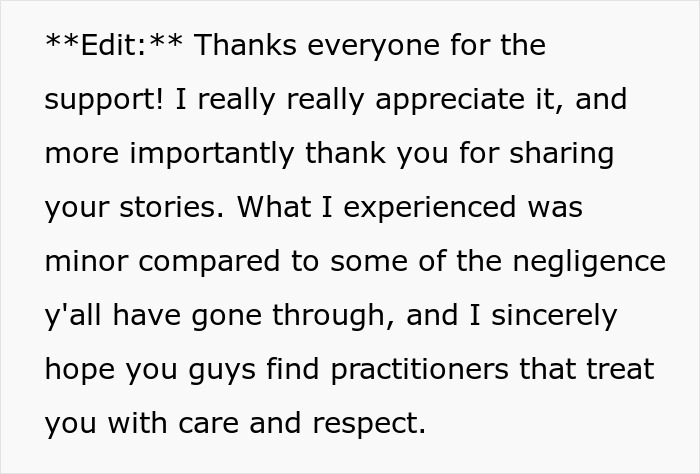
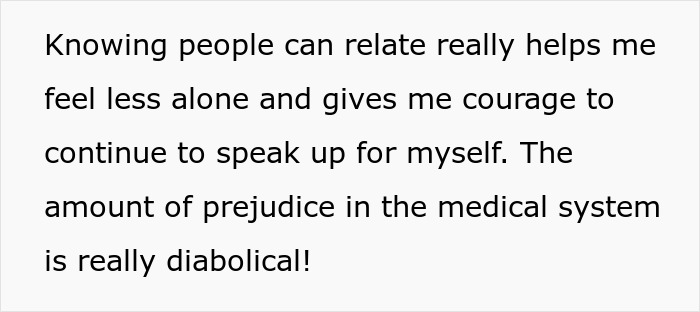
Image credits: peach_emoji_
According to a 2023 Pew Research Center survey, 32% of American adults have a tattoo themselves, including 22% who have more than one.
Overall, eight-in-ten Americans, including those with and without ink on their skin, believe society has become more accepting of tattoos over the past two decades or so, and 66% of those who don’t have one themselves say seeing a tattoo on someone else leaves them with neither a positive nor negative impression of that person.
However, 29% say it influences their perception badly.
And they aren’t the only ones who feel judged during their doctor appointments. One study found that 17 percent of patients have felt vulnerable to similar prejudice as the author of the post due to their “racial or ethnic identity, gender, socioeconomic status, weight or age.” What’s worse, these people were worse off health-wise than their peers, too — patients who feel judged by healthcare providers are less likely to access readily available preventive care such as flu shots and put off treating problems until they reach higher levels of acuity than others.
Other inked people shared their own similar experiences, revealing that this wasn’t a standalone case

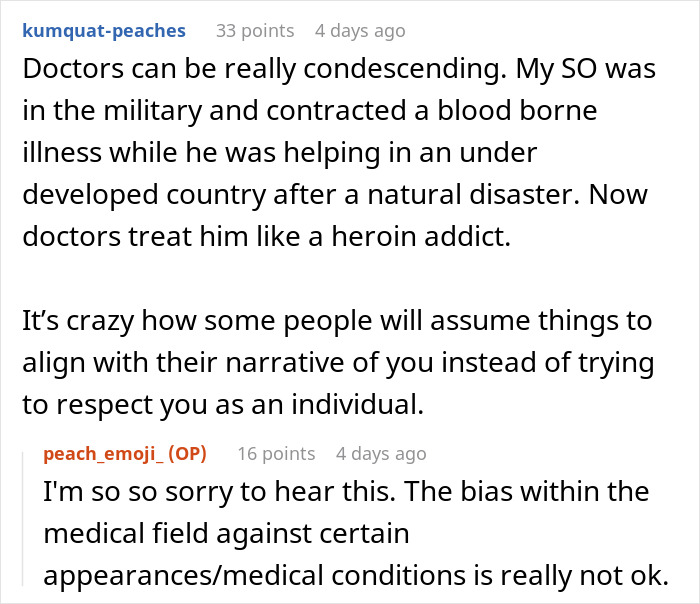
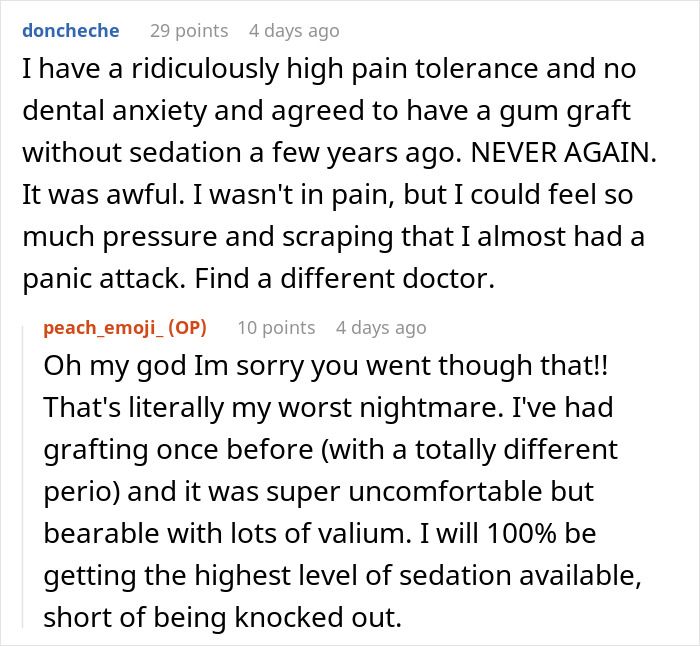
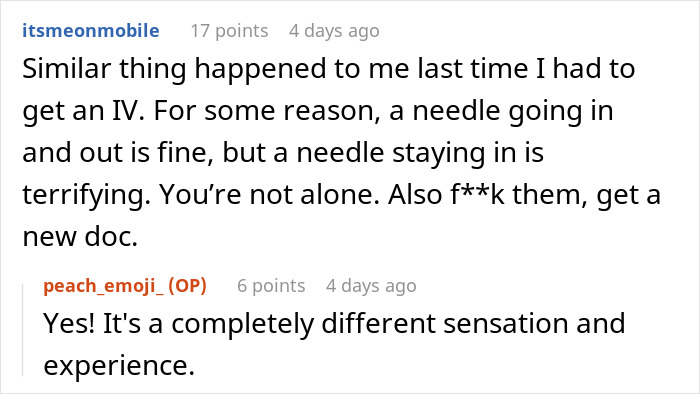
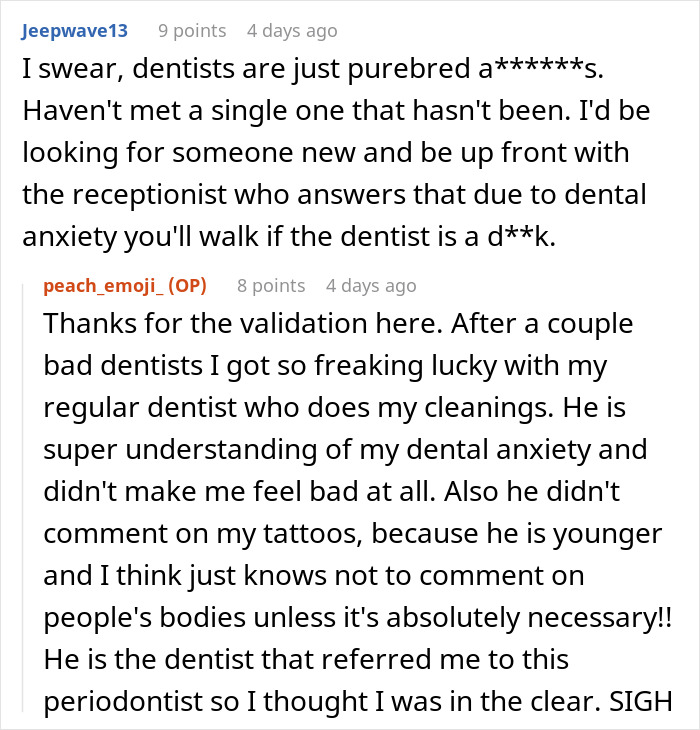
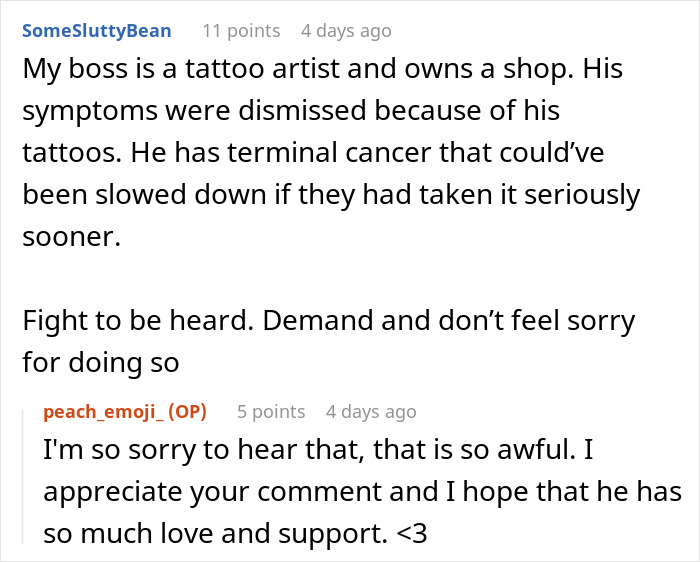

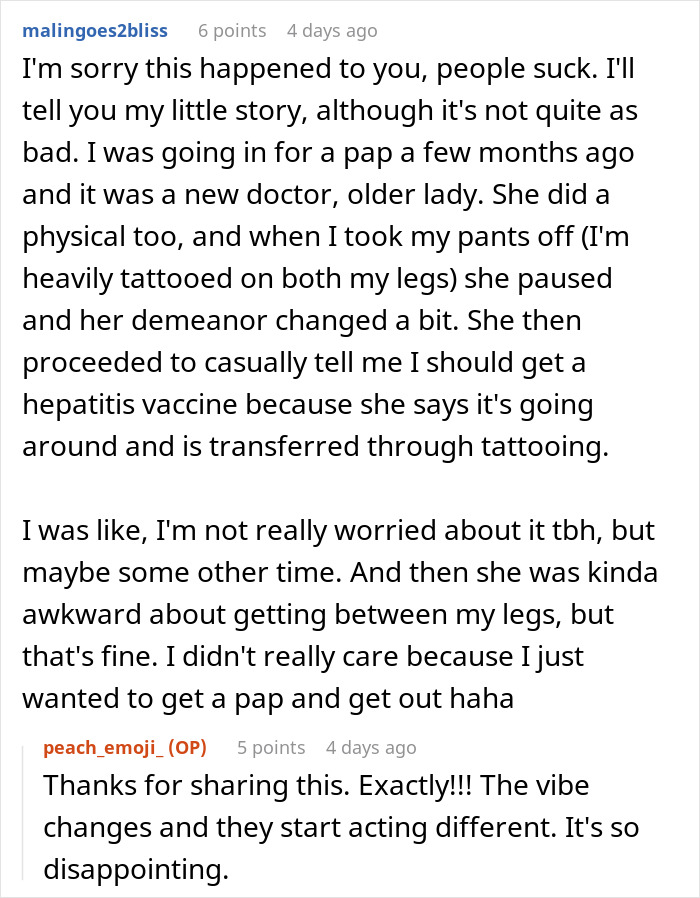
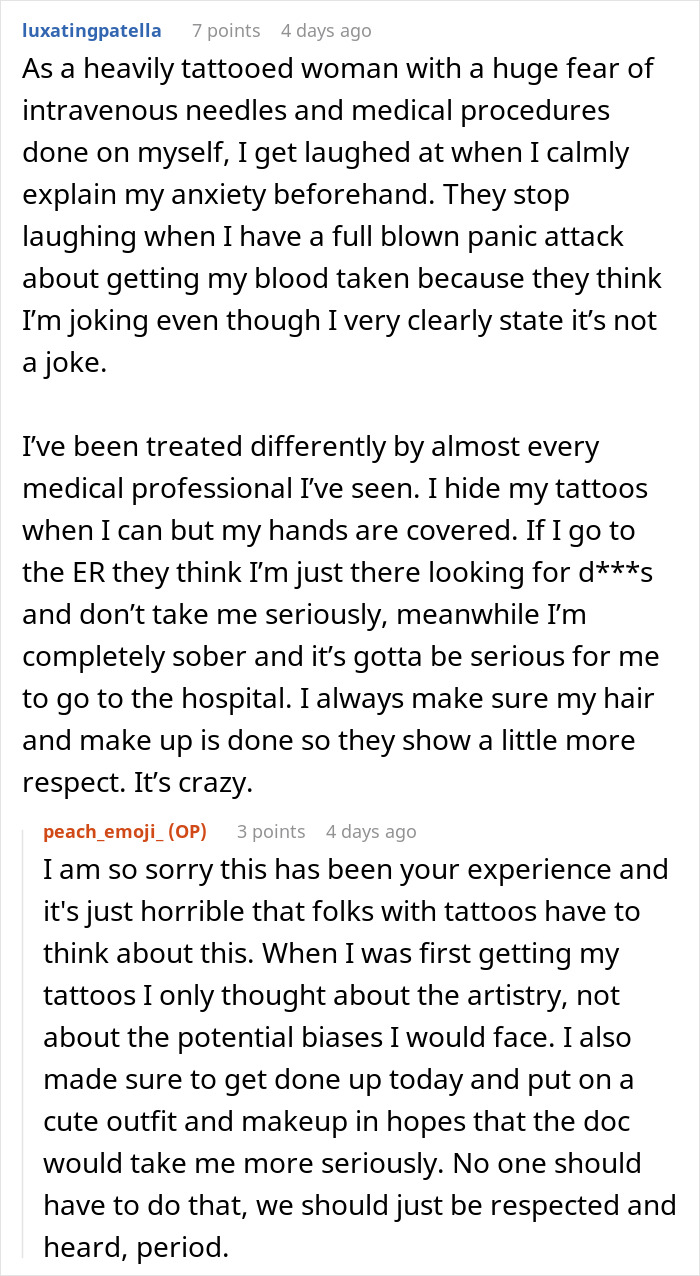
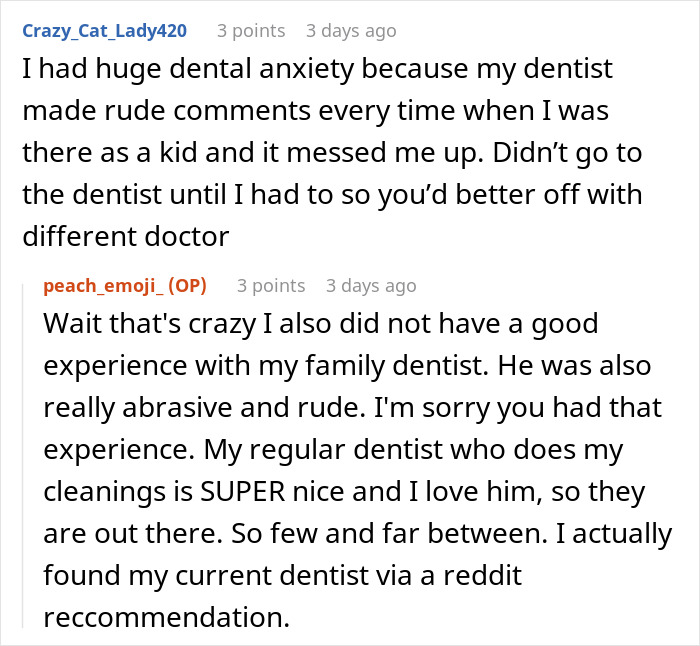
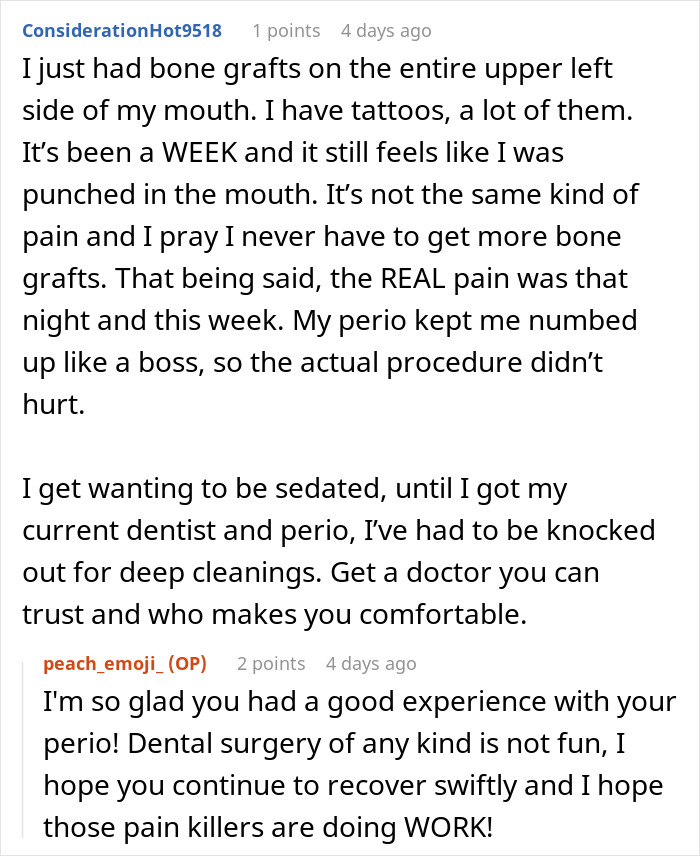

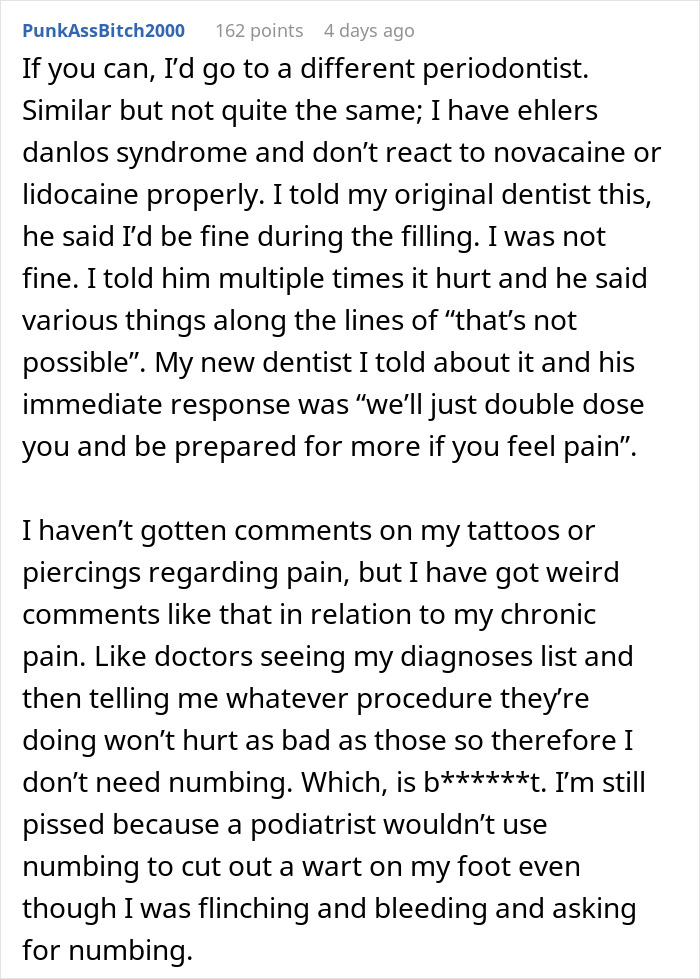

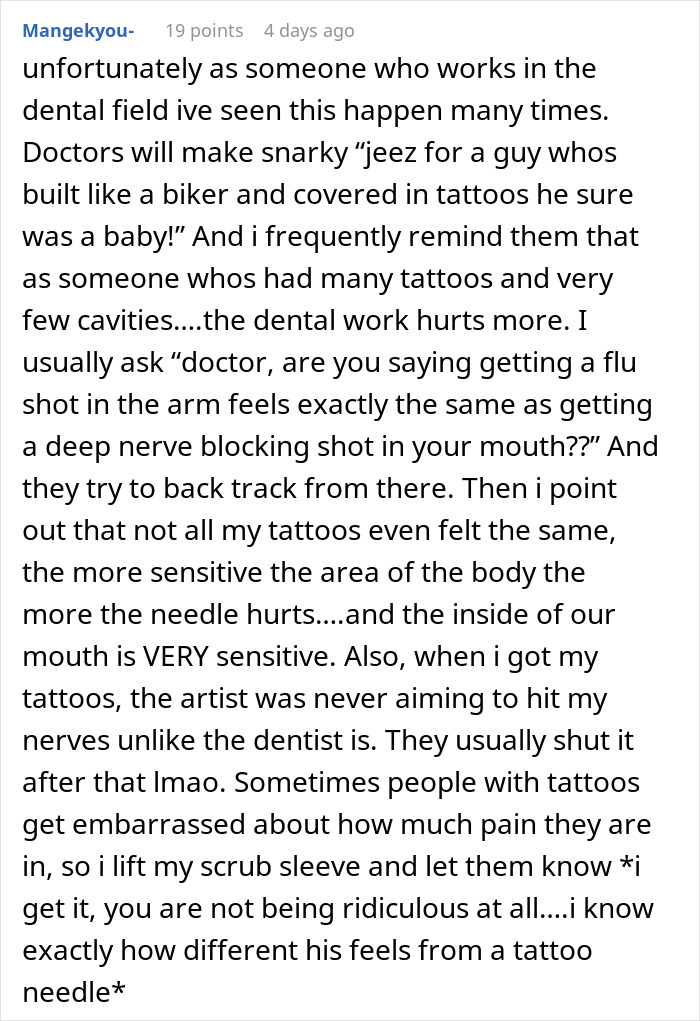
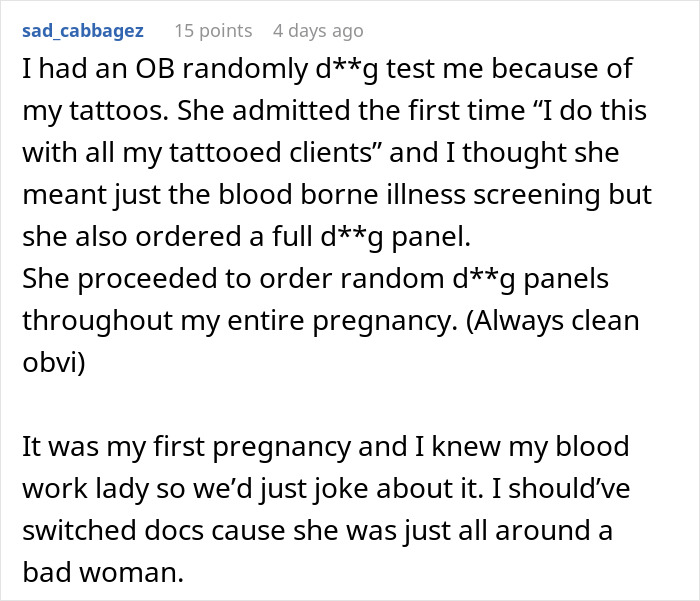
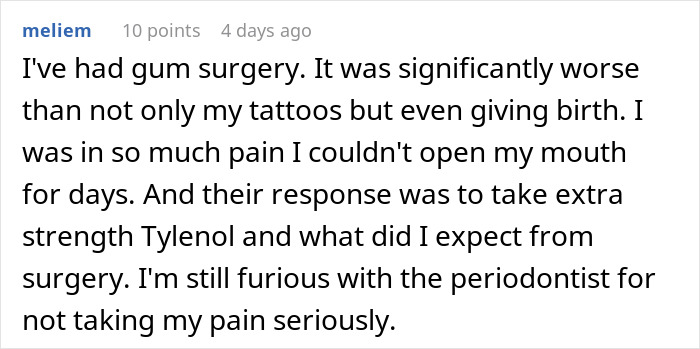

While most supported the author of the post
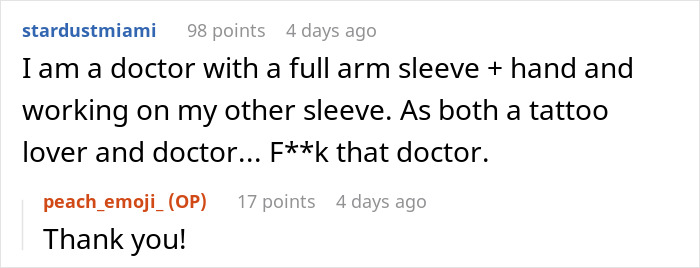




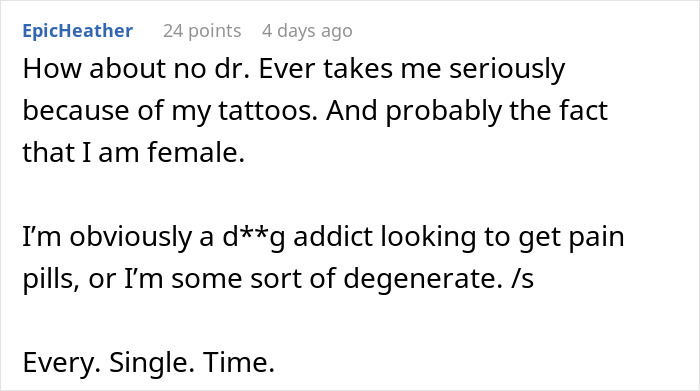
A few disagreed with some of the points she made
